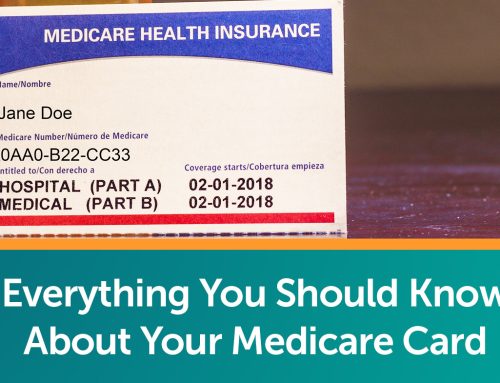Medicare, while a great program, can come with many requirements and guidelines, which can lead to confusion and misconceptions. Let Jeffery Insurance help get to the truth of some common myths!
Myth 1 – Medicare Registration is Always Open
This is a common misconception that confuses a lot of soon-to-be beneficiaries. Unfortunately, this isn’t true, and thinking wrong could result in penalties.
You’re able to (and should) enroll in Part A and Part B during your seven-month Initial Enrollment Period. This period includes the three months preceding a person’s 65th birthday, their birthday month, and the three months following their 65th birthday. If you miss it, your next chance to enroll is during the General Enrollment Period between January 1 and March 31 each year. If you don’t qualify for a Special Enrollment Period (like if you’re working past 65 and are delaying your enrollment), you might pay a monthly late enrollment penalty.
Myth 2 – Medicare Part B is Free
Alas – if only. Medicare Part B is not free. You may pay premiums, deductibles, copays, and coinsurance out of pocket, just like with any health insurance plan.
On the topic of free, it’s important to know that no part of Medicare is completely free. While you may qualify to have no premiums with Part A, you will still have a deductible, copay, and coinsurance. If you have Part C (Medicare Advantage), it may offer low to no-cost premiums, but there will be other costs included. And if you have Part D, you may have a premium for that as well.
Myth 3 – Medicare Covers Everything
Typically, this misconception is referring to Part A and Part B. Part A is hospital insurance and only covers hospital stays and associated inpatient services. Part B is medical insurance and covers doctor and outpatient visits and associated services. Parts A and B don’t cover:
- Prescription drugs
- Dental, vision, or hearing health care services
- Special benefits like coordinated care or transportation for doctor visits
These are just a few things they don’t cover. If you need prescription drugs, you’ll need a Part D plan in addition to Parts A and B or enroll in a Part C plan that includes prescription drug coverage. The other benefits are often only provided with a Part C plan but keep in mind each plan will vary in terms of benefits they cover and how.
Myth 4 – Coverage Costs the Same for Everyone
Nope. The exact amount you pay for your coverage will depend on the specific Medicare coverage you have, the health services and items you use each year, and whether or not you have financial assistance.
Myth 5 – If Your Spouse is Enrolled in Medicare, You are Automatically Enrolled Too
Unfortunately, this isn’t the case. Unlike many health insurances, Medicare doesn’t allow you to receive coverage through your spouse. Coverage isn’t a one-size-fits-all and is very individual. In order to receive Part A and Part B coverage, you need to apply for it individually.
Myth 6 – Medicare Will Notify Me When it’s Time to Enroll
Sorry – but you won’t get a reminder in the mail when it’s time to enroll. Unless you are already receiving Social Security at the age of 65, you’ll need to remember to sign up on your own. If you receive an email, call, or other communication claiming to be Medicare and asking for personal information, it’s very likely a scam.
Myth 7 – I Can’t Sign Up for Coverage because of Poor Health
Original Medicare can’t reject you because you’re sick or have a pre-existing condition. Under provisions of the Affordable Care Act, Medicare provides coverage for any medical expenses related to pre-existing conditions developed prior to your Initial Enrollment Period. So, whether you are completely healthy or have been diagnosed with a chronic condition when you become eligible for Medicare, you don’t have to be concerned about being accepted.
Remember, there are penalties for not signing up at the right time, but rest assured, you can’t be denied coverage because of health issues.
Myth 8 – Medicare and Medicaid are the Same
They are, in fact, two different programs. While they are both government programs that help people pay for health care, that’s where the similarities end.
Medicare is generally for people who are older or disabled, and it is governed by the federal government. Medicaid is for people with limited income and resources and is governed by the states. The federal government sets qualifying income and resource levels, but each state decides what counts when calculating this for an individual. It’s possible for some people to qualify for both programs, but they must apply for each program separately.
Jeffery Insurance Is Here to Guide You
We hope this helps to dispel some common misconceptions and bring clarity to the confusing maze that can be Medicare. Need more help understanding Medicare or need assistance on signing up for a plan? We’re here to help. We can answer your questions, help you understand Medicare, and help you find the coverage that will suit your needs best. Even after you sign up for a plan, we will be available every time you need us. We are based in Scottsdale but are happy to assist you no matter where you are in Arizona. Jeffery Insurance is Arizona’s health care resource!







